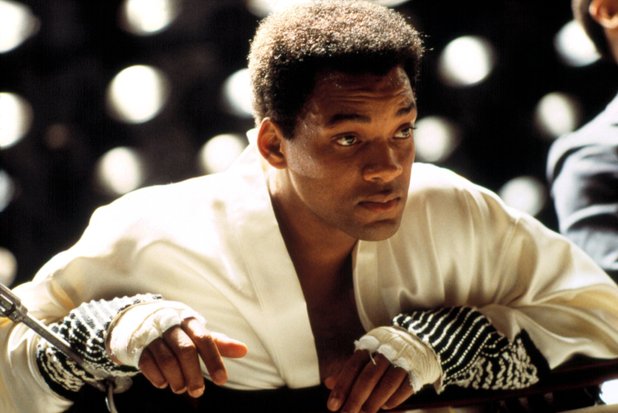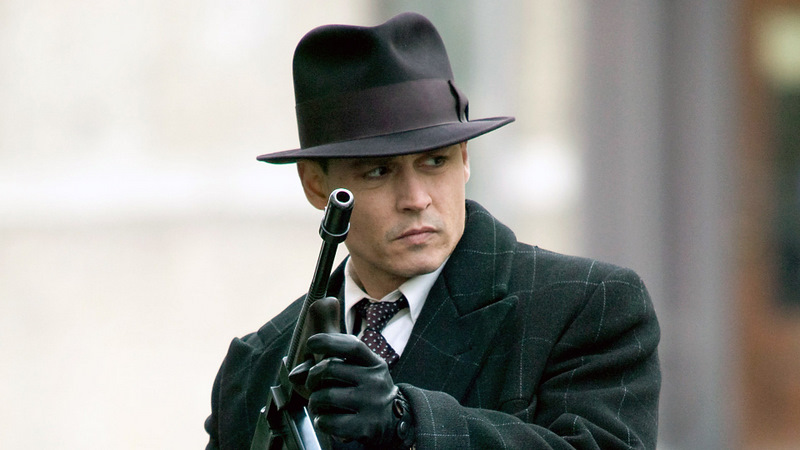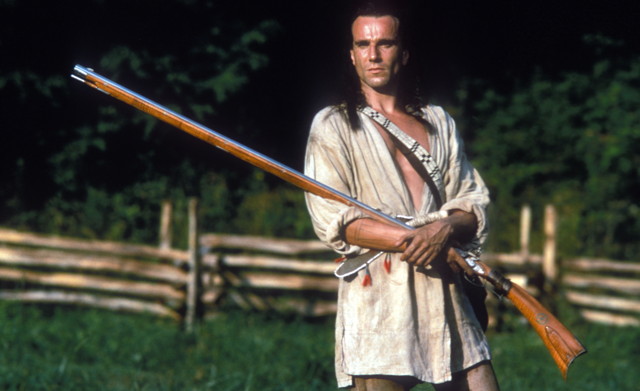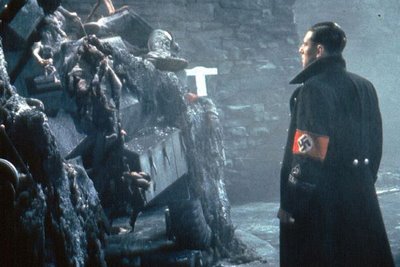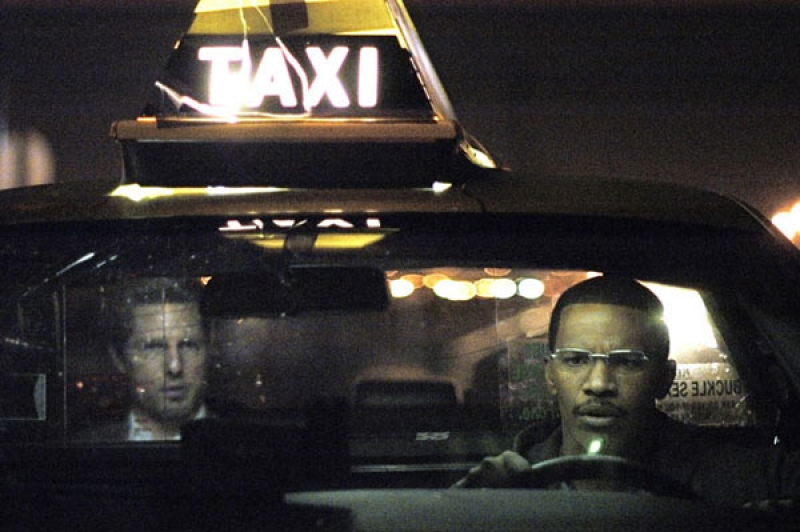Michael Mann is someone whose films depict a certain level of realism, to some perhaps laborious, others necessary and then there’s the in between who go to see his films because of who is in them. Ultimately it is the director’s power to draw such big names, which could be seen to appeal to all three. He is also a producer however it is not necessarily the topic of conversation, what is are his films that he has directed, and conversely has also not just been behind the camera, but also the script of every single feature he helmed.
Alongside his strong casts are carefully selected soundtracks and cinematography; stylistically he rarely strays from the typical hero/villain, more specifically cop/robber storyline. However he has always had a talent for almost aligning the viewer with the anti-hero, giving his protagonist a worthy opponent with a notion of duality – albeit one of opposites. There always seems to be undertones of the ‘lone wolf’ and solidarity about his characters, no matter what the feature may be, also those of principles, or a code and to a degree, honour.
Known for his meticulous demand for realism and researching every aspect revolving around his films, Mann does tend to take time in making his films, resulting in the fact he has only directed nineteen feature films to date out of over thirty five years directing. 2015 will see the arrival of his new release Cyber, which will feature Chris Hemsworth in, as yet, a vague plot revolving around the coalition of American and Chinese authorities to bring down a high-level computer hacking ring.
We look at the top ten essential films to take your time to watch by Mann should you already be a fan or wish to give his work another try.
10. Ali (2001)
Based on the life of the boxing legend Mohammad Ali, formerly Cassius Clay. Mann’s biopic chronicles the life of Ali beginning just before his championship fight against Sonny Liston and culminates in the famous Rumble in the Jungle fight against George Foreman. Starring Will Smith as Ali with strong supporting cast turns from Jamie Foxx, Ron Silver and Jon Voight.
Smith himself attained his first Academy award nomination in his what he proclaims was his favourite role to date, for which he gained a considerable amount of weight for the muscular frame required to play the former heavyweight champion. He spent nearly a year in total training for the boxing scenes as well as spending time with Ali to learn how he walked, talked and acted both publicly and in private.
While the film does contain a considerable amount of boxing, it depicts the man, not just the legend that Ali was. It shows his relationships with his trainers, the women in his life (Smith’s real wife, Jada Pinkett-Smith plays Ali’s first wife) and also his friends which ranged from very private friendships with fellow boxers at the time and high profile ones also such as Martin Luther King and in particular Malcolm X. His relationship with Howard Cosell is one of note, and is played brilliantly under the cover of facial prosthesis by Jon Voight.
Given his nature for realism, Mann instructed Charles Shufford, a boxer in real life, to really hit Smith and vice-versa, but not to the point of preventing to carry on. An honest depiction of Ali the man, showing his flaws both in the private and public eye and also a insight into his strength and triumph, this is one of Mann’s more emotion driven pieces and is one that features fine performances all around.
9. Public Enemies (2009)
Another biopic, this time depicting the life of infamous bank robber John Dillinger and featuring the man charged with capturing him, Melvin Purvis. Played by Johnny Depp and Christian Bale respectively. The film was shot on location against the rural setting of Wisconsin where Mann attended University nearby and was familiar with the locations and the buildings and resources around him and in local towns around Illinois, of which Mann is a native being born in Chicago.
Based on Public Enemies: America’s Greatest Crime Wave and the Birth of the FBI, 1933–34, a book by Bryan Burrough, Mann again co-penned the script which Burrough cited was not strictly accurate, but as close to real as a film has ever attempted.
Both Depp and Bale do not take their lead from traditional gangster or cops and robbers films, nor do many of the supporting cast. A slightly over the top performance from Stephen Graham as Baby Face Nelson is forgiven by both the leads and supporting cast. Depp channels his own imagining of Dillinger, using his own Kentucky upbringing (as Dillinger was born 70 miles from where Depp was) and based on how his own incarnation saw Dillinger to be through this and tapes of Dillinger’s father as not much was recorded.
An atmospheric soundtrack by Elliott Goldenthal with supporting tracks from Otis Taylor sets the tempo of the film very well in a flawed but still, fine film.
8. The Last of the Mohicans (1992)
Set around the true story of the Colonial Wars between the British and the French in North America and based on the novel of the same name by James Fenimore Cooper, The Last of the Mohicans featured already established Daniel Day-Lewis. Starring as the hero Nathanial Poe, it tells the story of three warriors who cross paths with a British officer accompanying the daughters of his regiment’s colonel.
Interestingly enough, Poe had to be renamed from the character in the novel, whose original moniker was Natty Bumppo, this was changed to prevent the unlikely laughter that would follow the announcing of his name throughout the film…
A period piece, Mann’s first following The Keep in 1983, was one of much trepidation by Warner Bros who were funding the film and capitulation by Mann as his original cut of the film ran well over three hours and had to be cut quite extensively. Although again, historically accurate to quite some degree, it is the book story that is changed quite extensively, albeit added to with the inclusion of the deaths of a number of main characters.
Typically methodical, having lived in the wilderness for several months in preparation, Day-Lewis’ portrayal of Poe is one of intensity and believability but it is the supporting cast again in the form of Russell Means and Wes Studi who provides the real intensity and drive behind the film.
Studi’s depiction of the Huron warrior and films main antagonist, Magua, is chilling and at times savage with little or no sympathy shown towards his counterparts in the film and shows the nature of how natives would behave in a way when spoiled and compliments the films less dark side. A period piece and an “epic” of sorts, it is a film well shot and acted throughout and shows how Mann can provide a film with another great ensemble.
7. The Keep (1983)
Mann’s second full length feature, set against the back drop of the Second World War is a supernatural thriller starring Scott Glenn, Ian McKellen, Jurgen Prochnow and a very angry Gabriel Byrne.
The second film helmed by Mann to be uncharacteristically scored by French electronic band Tangerine Dream is eerie, and almost dream-like. Glenn plays a stranger who upon the invasion of a small Romanian town and the seizure of one of its churches, is seemingly ‘activated’ and proceeds to crusade from his Greek home to stop the Germans.
After the greed of the Germans is realised by the removal of silver crosses from the walls of the keep at the behest of the local priest, the evil contained within the walls starts to pick the Nazi soldiers one by one. What ensues is the arrival and dispatching of an SS squad headed by Byrne, and also a mysterious doctor and his daughter played by a reverse-aging Ian McKellen and young Alberta Watson who would later go on to give orders in 24.
Although critically and commercially this film was not a success, and has even been abandoned by Mann himself, it has gone on to become a cult favourite among film lovers and makers alike. Although at times quite far fetched and lacking in decent special effects (bearing in mind The Thing & American Werewolf in London preceded with similar budget money and better effects) the narrative is well laid out and even Mann himself tells of how is should be a fairy tale for adults.
This being said and despite its cult following the film is still only available on VHS and sometimes shown on television and as yet, is the only film by Mann not to have a DVD release, which in itself gives an element of prestige.
6. Collateral (2004)
The first feature film to be shot using the High Definition Viper Filmstream camera system, Collateral is a tense time constricted action thriller featuring many of the director’s trademarks, one of which being his ability to reflect the atmosphere and mood of his characters through his cinematography, the main draw to using the aforementioned digital camera set up.
Tom Cruise plays hitman Vincent driven around by Jamie Foxx’s initially unsuspecting taxi driver Max. Vincent’s agenda is simple; he askes Max to drive him around for the evening making pit stops along the way and finally return him to the airport and he will pay him $600, only problem being is each pit stop means a person will die. Mark Ruffalo is the detective trying to solve and in turn prevent any further loss of life at the hands of Vincent.
Stuart Beattie’s idea stemmed from being in the back of a taxi and wondered what it would be like to have a killer in the cab while having a normal conversation. After year of sitting on a shelf the script grabbed came to the attention of Russell Crowe, who in turn brought the idea to Michael Mann. With the role of Vincent looking like it was going to be Crowe, Mann auditioned several candidates, one of which was a very serious possibility of having Adam Sandler play the role of Max.
Mann immersed himself in the production of Collateral as he does so many of his films, with Tom Cruise and Mark Ruffalo both having extensive firearms training, he too underwent it so as to capture it just right on film. Before production even started, he requested that Cruise, whose character would possess the ability of blending in, striking and then disappearing into the crowd again, should pose as a delivery driver and pass this off without someone recognising arguably the most famous man in Hollywood. He did this so well that he maintained a conversation with a stranger and even spoke about himself in the third person.
